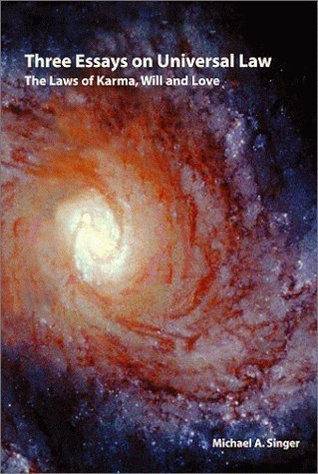What do you think?
Rate this book


THE LAW OF WILL: Will power is a force nearer to us than any of the external forms of power which we utilize each day. Yet, from an analytical point of view, the power of will is perhaps the least understood. This essay constructs an unprecedented model of the will force which is used to answer questions such as: what will is, where it comes from, and how we manage to have control over this force. The analysis then turns to the age-old question of whether man really has "free will."
THE LAW OF LOVE: Psychology and religion both stress that at the very essence of man's being is the yearning for love. But though we have all shared in love, very few people actually understand what is happening when love is felt, or what conditions determine the presence or absence of this force. In this essay a comprehensive model of the love force is constructd based upon the Eastern concept of the seven chakras. Around this model a thorough analysis is conducted which reveals the essential qualities of true love. This essay has been repeatedly praised as one of the clearest eplanations of what is actually going on inside when we "fall in love," as well as clearly explaining how we can consciously come into tune with this inner force.
98 pages, Paperback
First published January 1, 1975
“Just because the state of enlightenment lies beyond the mind does not mean that the mind should be viewed as a hindrance on the Path. The true aspirant fully uses his body, emotions, and mind in order to help him toward his Goal. The lower aspects of man are only a barrier when they are allowed to work for their own, habit-formed desires. They become the aspirant’s dearest friend when they are employed in spiritual pursuits.
It is in this spirit that the current work, Three Essays on Universal Law, has been written... The reader who studies these Laws with one eye focused on the pages and the other eye focused within himself will gradually notice a framework emerging around which he can structure the seemingly unconnected events of his life. Each reader is invited to study these Higher Laws with the same intellectual skepticism which is characteristic of non-spiritual, academic studies. Nothing in these pages should be blindly accepted. Since the three Laws presented in this work play a major role in governing our everyday lives, if they are Truth, they should be able to stand the test of daily observation in the Laboratory of Life. The greatest end which this work can serve is to stimulate us to turn our intellects, now overburdened with solving life’s problems, toward solving the mysteries of life itself.”
~ Michael A. Singer from Three Essays on Universal Law